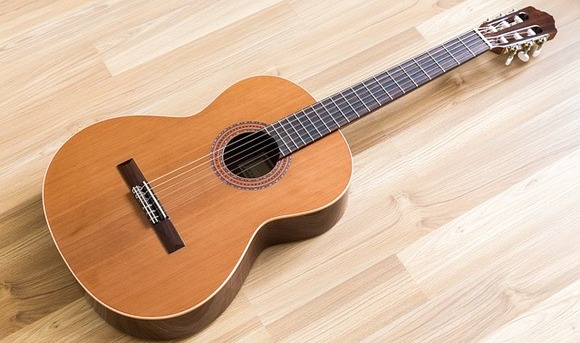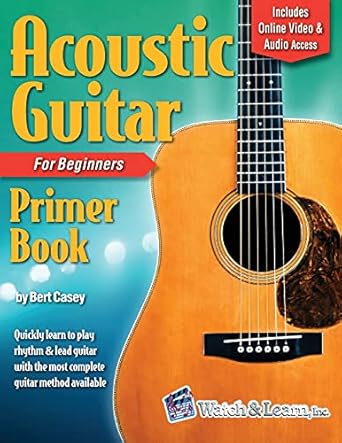Choosing between learning acoustic or electric guitar is a common dilemma for beginners. Both instruments have their own unique qualities, and deciding which to start with can depend on your musical interests, goals, and preferences. In this article, we’ll break down the advantages of each and help you decide which guitar is best suited for your learning journey.

1. Acoustic vs. Electric Guitar: The Basics
Before diving into the pros and cons, it’s essential to understand the fundamental differences between acoustic and electric guitars.
- Acoustic Guitars: These guitars produce sound through the vibration of the strings, which resonate within the hollow body of the guitar. No amplification is needed to hear the sound. They are typically used in genres like folk, country, pop, and classical music.
- Electric Guitars: Electric guitars require an amplifier to project sound. They produce a more diverse range of tones thanks to effects pedals and amp settings. Electric guitars are commonly used in rock, metal, jazz, and blues.
2. Learning Acoustic Guitar: Pros and Cons
Pros:
- No Need for Amplification: One of the biggest benefits of starting on an acoustic guitar is that you don’t need extra equipment like an amplifier. You can play anywhere, anytime, without needing to plug in.
- Portable and Convenient: Acoustic guitars are lightweight and easy to carry around. Whether you’re practicing at home, at a park, or at a friend’s house, you can take your acoustic guitar with you easily.
- Finger Strength and Technique: Acoustic guitars typically have thicker strings and require more finger strength to press down the strings. While this might seem challenging at first, it can help build strength and improve finger dexterity early on.
- Great for Beginners: Acoustic guitars are straightforward. Without the need for additional equipment or effects, beginners can focus entirely on learning chords, finger positions, and strumming techniques.
Cons:
- String Tension and Comfort: The thicker strings and higher tension of acoustic guitars can be tough on beginners’ fingers. This can lead to soreness and discomfort, especially in the early stages of learning.
- Less Variety in Sound: Compared to electric guitars, acoustics offer fewer tonal options. While they sound beautiful on their own, you don’t have the same flexibility in manipulating sound with effects pedals or amps.
3. Learning Electric Guitar: Pros and Cons
Pros:
- Easier on the Fingers: Electric guitars have thinner strings and lower action (the distance between the strings and the fretboard), making them easier to play. This can be more comfortable for beginners, reducing finger fatigue and soreness.
- Diverse Sound Options: Electric guitars can produce a wide range of sounds and tones with the help of effects pedals, amp settings, and pickups. If you’re interested in genres like rock, metal, or blues, an electric guitar will give you more sonic flexibility.
- Amplification and Effects: One of the fun aspects of electric guitars is the ability to experiment with amplification and effects. From distortion to reverb, electric guitars allow you to craft a unique sound, which can be inspiring for beginners.
- Quieter Practice: With an amplifier that has a headphone jack, you can practice silently without disturbing others, making it a great option for apartment living or late-night practice sessions.
Cons:
- Requires More Equipment: Electric guitars need an amplifier, cables, and possibly pedals to get the best sound. This means you’ll need to invest in more gear, and it can make setup a bit more complicated.
- Heavier and Less Portable: Electric guitars, along with their accompanying equipment, can be heavier and less portable than acoustics. If portability is important to you, keep this in mind.
- Can Be Distracting: With so many sound options and effects, beginners might focus more on playing around with the gear than mastering the basics of playing. It’s easy to get lost in the fun of distortion and effects rather than developing proper technique.
4. Which Guitar Is Easier to Learn?
When it comes to ease of learning, the answer varies depending on the individual. However, many beginners find electric guitars slightly easier to learn due to the lighter strings and lower action, which reduce finger strain. However, an acoustic guitar offers a more straightforward approach since it doesn’t require additional equipment and forces you to focus on technique early on.
5. What Are Your Musical Interests?
Your decision between acoustic and electric may ultimately come down to your personal musical preferences. Consider what genres of music you’re most interested in learning. If you love folk, country, or classical music, an acoustic guitar is the more natural choice. On the other hand, if you’re drawn to rock, blues, or metal, an electric guitar might suit you better.
6. Can You Switch Between Acoustic and Electric Later?
Yes! One of the great things about learning guitar is that once you’ve mastered the basics on one type of guitar, it’s relatively easy to transition to the other. Skills like chord progressions, finger placement, and strumming techniques are transferable between acoustic and electric guitars. So, don’t feel too pressured to make the “perfect” choice upfront—whichever guitar you choose first, you can always expand your skills later.
7. Which Guitar Is Better for Singing and Playing?
If you’re interested in singing and playing simultaneously, many beginners find that acoustic guitars are better suited for this. The natural, resonant sound of an acoustic guitar complements vocals well, and you won’t have to deal with amplifiers or effects while trying to concentrate on both singing and playing.
8. Conclusion: Acoustic or Electric—Which Should You Choose?
Ultimately, the choice between acoustic and electric guitar comes down to personal preference and your musical goals. Acoustic guitars are great for their simplicity, portability, and ability to strengthen your fingers early on. Electric guitars offer a wide range of sounds and are easier on the fingers, but they require additional equipment.
If you’re just starting out and want to focus on technique without distractions, an acoustic guitar might be the way to go. However, if you’re drawn to the rich, amplified sounds of rock or blues, and you don’t mind investing in a bit more equipment, an electric guitar could be the perfect fit.
Remember, there’s no wrong choice! Whichever type of guitar you start with, the important thing is to enjoy the process of learning and playing.




